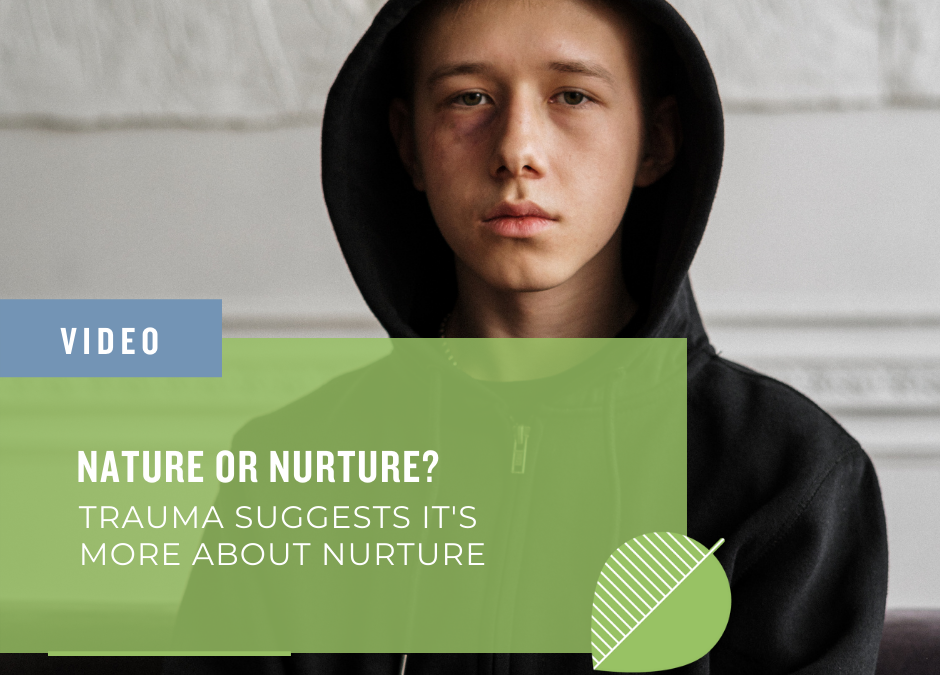As a student, and in the early years of my career, I put a lot of weight on the role of nature in the whole “nature vs. nurture” debate.
I was doing a lot of work in addiction psychology at the time and strongly believed in a person’s genetic predisposition to addiction.
Fast forward several years later.
I started noticing something else in clients’ histories. Clients struggling with addiction usually had some deep pain they were trying to mask, avoid, or cope by abusing drugs or through process addictions (e.g., shopping, sex, gambling, food).
And the type of pain they were masking is better known as trauma.
Trauma is Long-Lasting
According to the Centre for Addiction and Mental Health, trauma is the lasting emotional response that often results from living through a distressing event.
As I spend more time helping people who’ve experienced trauma, I’ve now moved to the other side of the nature vs. nurture debate.
Today, I am more inclined to believe that most of our behaviors and personalities are shaped by our environment.
Why do I believe this? There are two reasons.
1) Trauma Changes People
The reality is that both single-incident trauma (e.g., unexpected death, rape, a severe car accident) and complex trauma (e.g., living in an abusive relationship; living in a war zone) has the potential to change someone’s personality significantly.
Simply put, trauma changes people. It can even alter your brain’s development.
Many people come from “good genes” or have a rich biological make-up. Yet, when they experience a severe traumatic event, they can turn into a completely different person. And this change in personality can last for decades.
The drastic change in their personalities and day-to-day behaviors after being exposed to trauma is one argument for why the environment is so influential in shaping character.
2) People Have The Capacity to Grow Because of Trauma
The other reason for my inclination to favor nurture over nature is how these same survivors of trauma can heal and grow through adversity.
In my book, The Promise Wheel, I highlight several examples of posttraumatic growth – a phenomenon that sees some individuals become psychologically stronger as a result of a painful event.
Many factors contribute to posttraumatic growth (e.g., social support, hope, acceptance). Still, the fact that individuals can change and heal despite experiencing trauma supports the notion that a person’s life is not pre-determined by their genes or biology.
Trauma Can Change A Person, But It Doesn’t Have To Be Permanent.
My goal for writing this post was to point out the influence of the environment on mental health and personality development. And trauma is a case in point.
But just as an individual can experience long-term pain due to a traumatic event, that person can also grow and heal from it.
That’s what this week’s video is about.
I hope this post helps in building your strength and hope.
Richard

